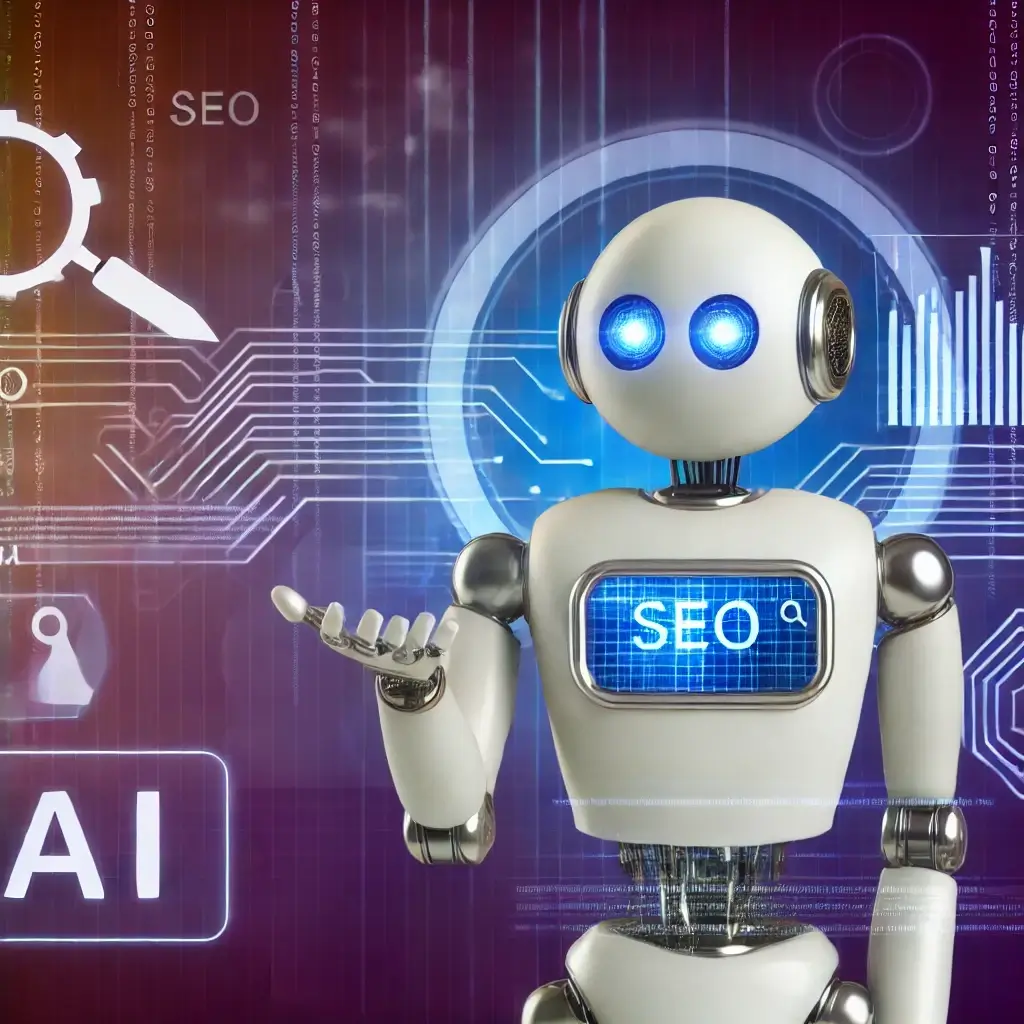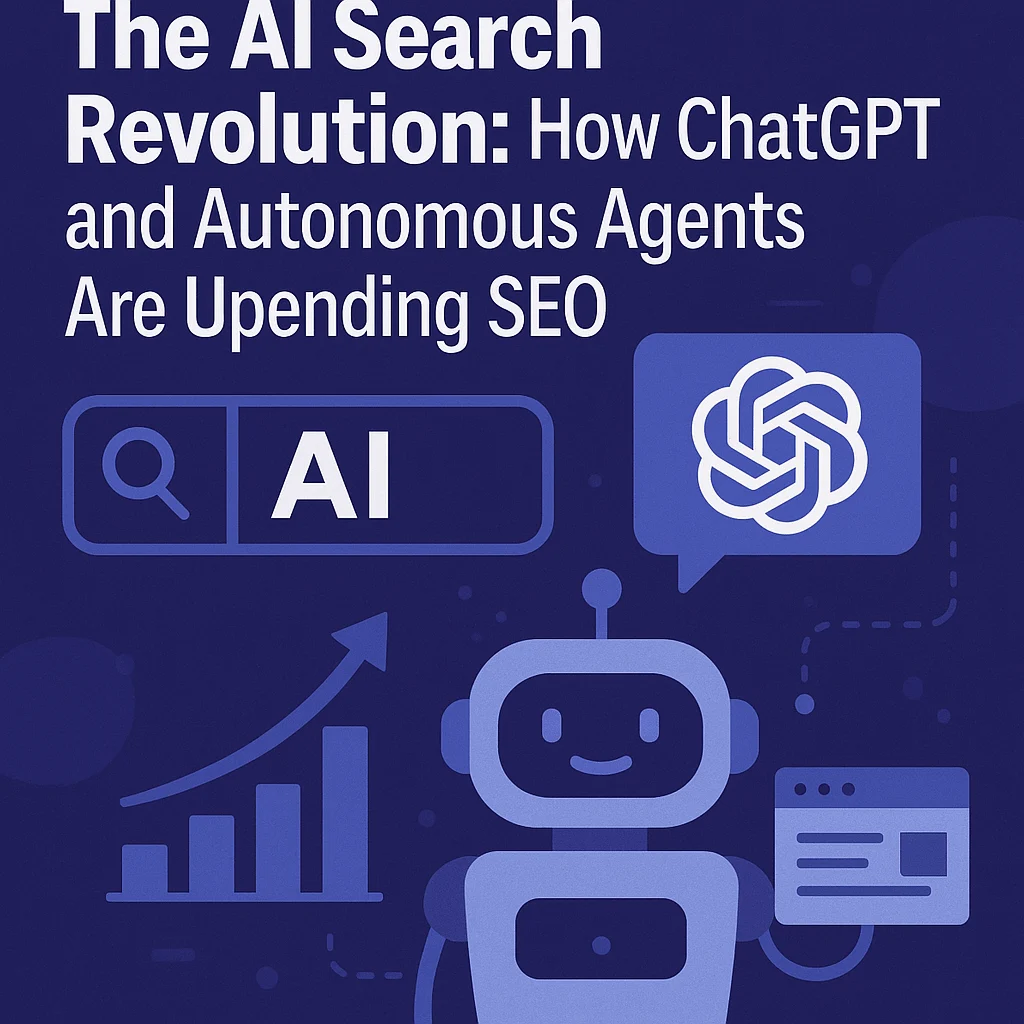As technology evolves, so does the landscape of Search Engine Optimization (SEO). Two major players in this transformation are Artificial Intelligence (AI) and Machine Learning (ML), whose advanced capabilities are increasingly impacting the way SEO is conducted. This article delves deep into how AI and ML are reshaping SEO and why businesses must adapt to stay competitive.
Understanding AI and ML
AI refers to computer systems or machines capable of performing tasks that typically require human intelligence. These tasks include learning from experience, interpreting natural language, recognizing patterns, and making decisions.
ML, a subset of AI, enables machines to learn from data without explicit programming. ML models improve their performance as the amount of data they’re exposed to increases, allowing them to make more accurate predictions over time.
How AI and ML Influence SEO
AI and ML significantly affect SEO in several profound ways:
- Personalized User Experiences: AI and ML can analyze vast amounts of user data, learning from individual user behaviors to provide highly personalized experiences. For instance, they can deliver personalized content, product recommendations, or search results, improving user satisfaction and engagement. This personalization can directly impact SEO since search engines like Google prioritize user experience.
- Improved Search Algorithms: AI and ML have been instrumental in enhancing the sophistication of search algorithms. Google’s AI algorithm, RankBrain, uses ML to understand and interpret search queries better, particularly for new or unique queries. RankBrain’s understanding of context and user intent allows Google to deliver more relevant search results, emphasizing the need for content to be high quality, relevant, and user-focused to rank well.
- Voice Search Optimization: AI-driven voice assistants like Siri, Alexa, and Google Assistant are reshaping how users conduct searches. As voice search becomes more popular, optimizing for it becomes a critical part of SEO. This trend involves focusing on long-tail keywords and natural, conversational language, which AI and ML algorithms are better equipped to understand. This shift underscores the importance of conversational content that mirrors natural speech patterns.
- Predictive Analysis: AI and ML can process and analyze vast amounts of data at unprecedented speeds, making them excellent tools for predictive analysis. They can predict future trends or behaviors based on historical data, helping businesses stay ahead of the curve. SEO strategies can be adjusted based on these predictions to optimize for future search trends. For example, identifying seasonal keyword trends or emerging topics can help businesses create timely and relevant content.
- Enhanced Image and Video Search: AI and ML have significantly improved image and video search capabilities. Google’s Vision AI can understand the content of an image or video better than ever before, making image and video optimization more crucial for SEO. This means that businesses must ensure their multimedia content is accurately tagged and described to enhance discoverability. AI tools can also generate automatic alt text and analyze video content for better indexing.
- Automated SEO Tasks: AI and ML can automate repetitive SEO tasks, such as keyword research, meta descriptions, or even content creation, saving time and resources. Automation tools powered by AI can generate SEO-friendly content outlines, suggest improvements for on-page SEO elements, and even optimize technical SEO aspects like site speed and mobile friendliness. However, this automation should be used wisely to maintain authenticity and the human touch in content.
- Content Quality and Depth: Developing high-quality, in-depth content that addresses user needs comprehensively is paramount. Longer, well-researched articles that provide value tend to perform better in search rankings. AI and ML can assist in identifying content gaps, generating ideas for creating such valuable content, and even predicting which topics will resonate most with your audience. Tools like AI-driven content optimization platforms analyze top-performing content and suggest improvements.
- Sustainability and Ethical Practices: Reflecting values like sustainability and ethical business practices can improve brand perception and resonate with modern consumers, positively impacting your SEO. AI tools can help analyze consumer sentiment and ensure that your content aligns with these values. Additionally, businesses can leverage AI to monitor and report on their sustainability practices, ensuring transparency and authenticity, which are increasingly important to today’s consumers.
The Future of AI and ML in SEO
The influence of AI and ML on SEO will continue to grow. SEO strategies will need to adapt to the increasingly sophisticated algorithms these technologies enable. This includes creating high-quality, relevant content, optimizing for voice search and personalization, and using predictive analysis to anticipate future trends.
Moreover, as AI and ML become more accessible, smaller businesses can leverage these technologies to level the playing field with larger competitors. Tools like Google’s AutoML enable businesses with limited ML expertise to create custom ML models. This democratization of AI technology means that innovative SEO practices are no longer confined to large enterprises with substantial resources.
Embracing AI and ML for SEO Success
To truly harness the power of AI and ML in SEO, businesses should:
- Invest in AI and ML Tools: Leverage advanced tools for keyword research, content optimization, predictive analysis, and automated reporting.
- Focus on High-Quality Content: Create in-depth, valuable content that meets the needs of your audience and aligns with search engine preferences.
- Optimize for Voice Search: Adapt your SEO strategy to include long-tail keywords and natural language to capture the growing voice search market.
- Embrace Ethical Practices: Ensure your content and business practices reflect sustainability and ethical values to build trust and improve SEO.
In conclusion, AI and ML have significant implications for SEO. They are changing how search algorithms work, how users search for information, and how businesses need to approach their SEO strategies. Staying on top of these changes and leveraging the opportunities that AI and ML present will be crucial for businesses to succeed in the ever-evolving world of SEO. The future of SEO is not just about keeping up with technology but about integrating it seamlessly into your strategy to drive growth and achieve long-term success.



